The best sculptures of all time
Categories: Culture | Design and Architecture | Europe | News | World
By Angela https://pictolic.com/article/the-best-sculptures-of-all-time.html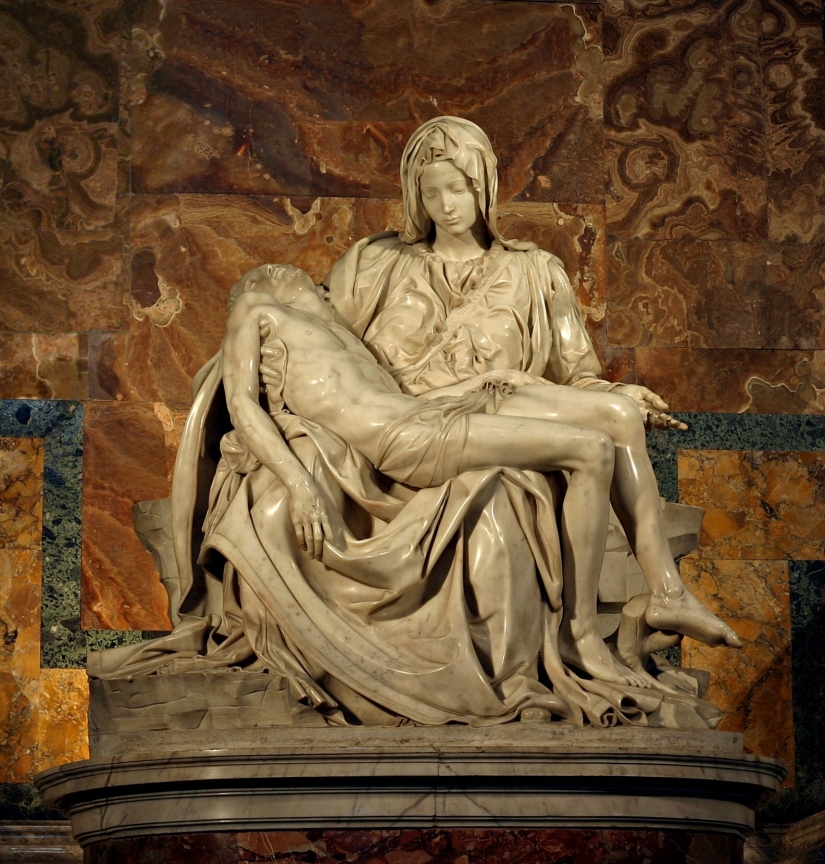
The Pieta is a world-famous work of Renaissance sculpture by Michelangelo Buonarroti located in St. Peter's Basilica in the Vatican. This is the first of a series of works by the artist on the same theme. The statue was commissioned for the French cardinal Jean de Billières, who was the representative in Rome. The Carrara marble sculpture was made for the tombstone of the cardinal, but in the 18th century it was moved to its current location - the first chapel on the right at the entrance to the basilica. This is the only work signed by Michelangelo. This famous piece of art depicts the body of Jesus in the lap of his mother Mary after the Crucifixion.
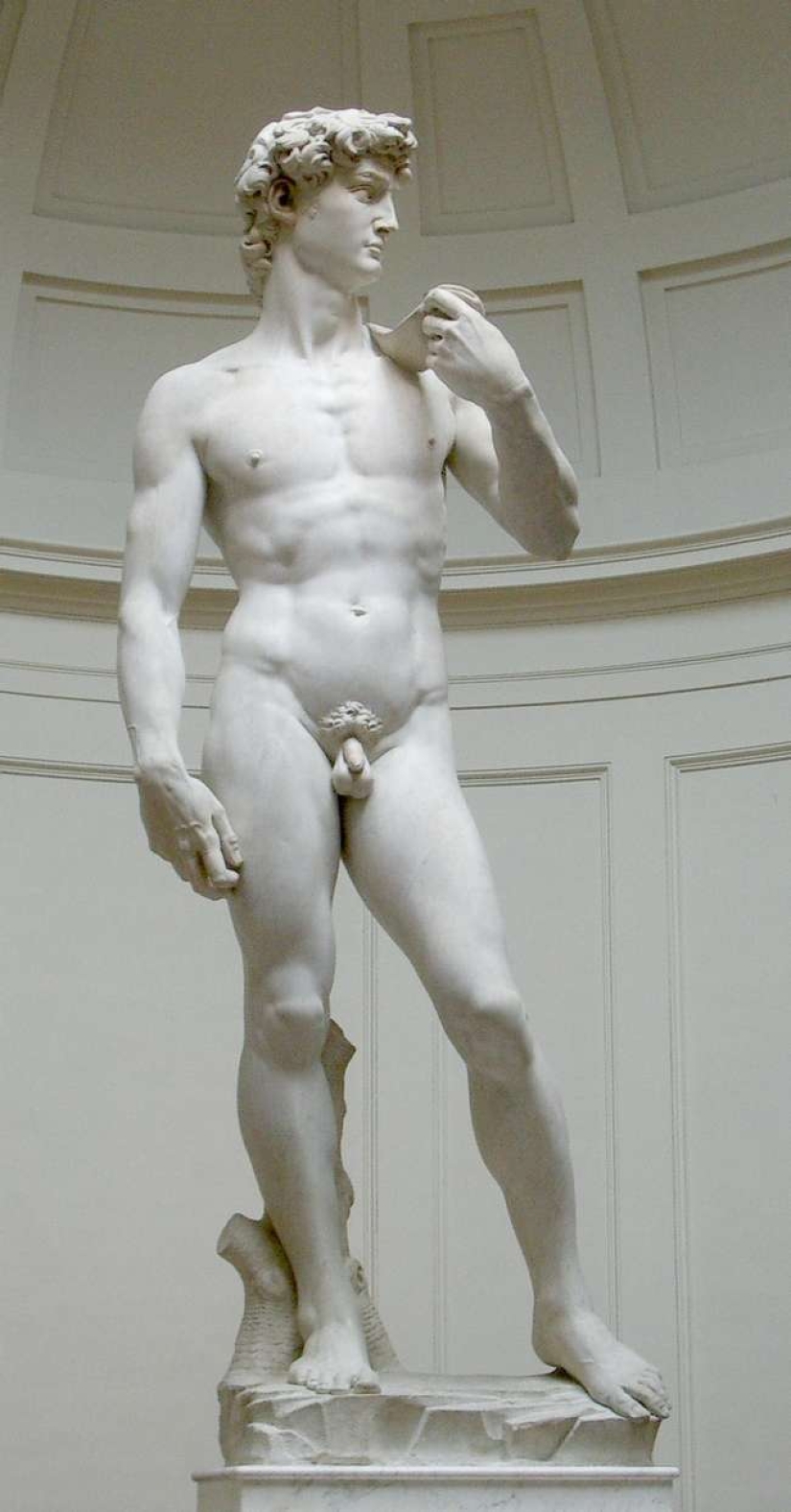
David is a masterpiece of Renaissance sculpture created between 1501 and 1504 by the Italian sculptor, painter, architect and poet Michelangelo. The statue represents the biblical hero David, a favorite figure in the art of Florence. The statue was originally commissioned as one of a series of statues of the prophets to be placed along the roofline of the eastern end of the Florence Cathedral, but instead the statue was placed in a public square outside the Palazzo della Signoria, the seat of civil government in Florence, where it was unveiled on September 8, 1504 of the year.
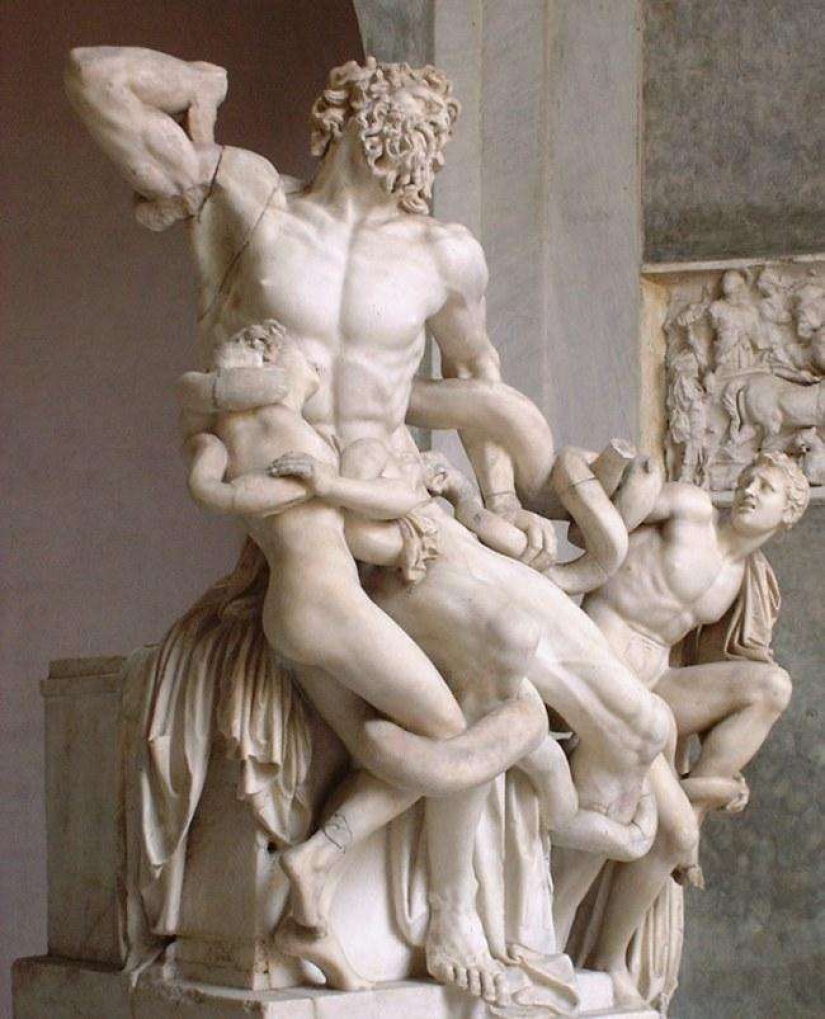
The statue of Laocoön and his sons, also called the Laocoön group, has been one of the most famous ancient sculptures since it was excavated in Rome in 1506 and put on public display in the Vatican, where it remains. In exceptional cases, it is most likely the same object as the statue, highly regarded by the main Roman art writer Pliny the Elder. The figures are almost life-size, and the group is just over 2 m high, depicting the Trojan priest Laocoön and his sons Antiphantes and Timbreus, attacked by sea serpents.
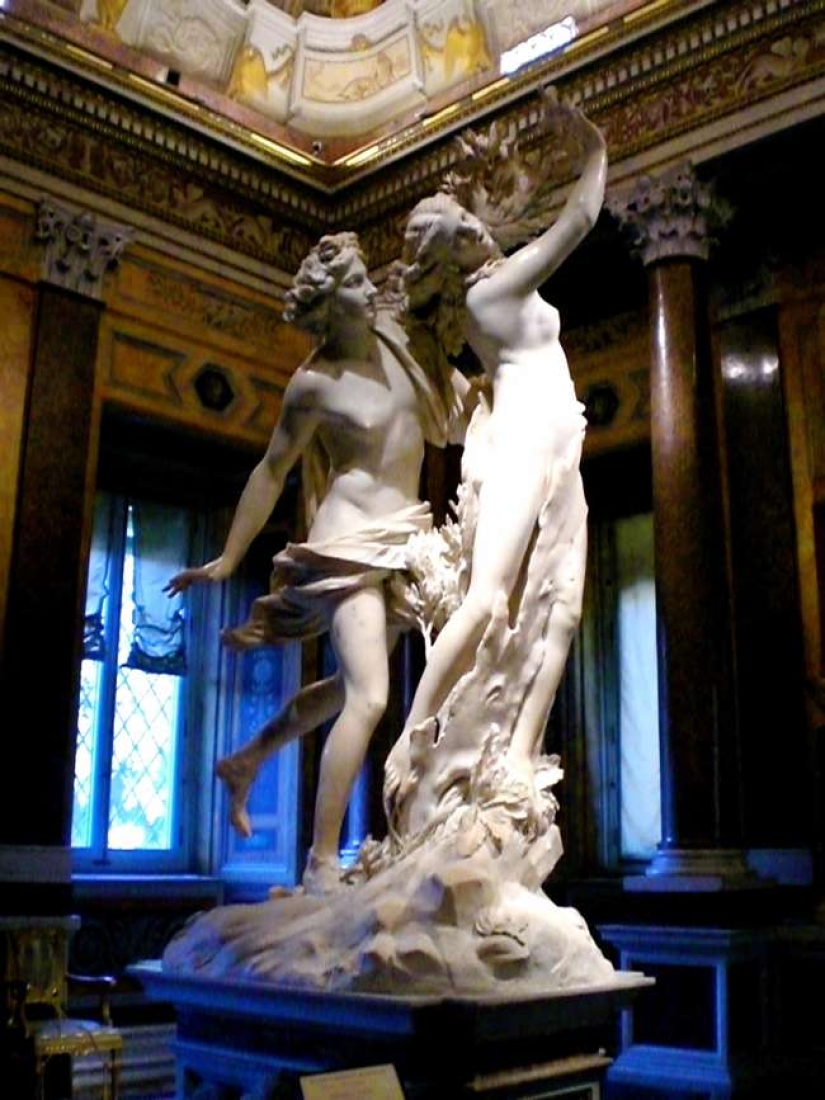
Apollo and Daphne is a life-size Baroque marble sculpture by the Italian artist Gian Lorenzo Bernini between 1622 and 1625.
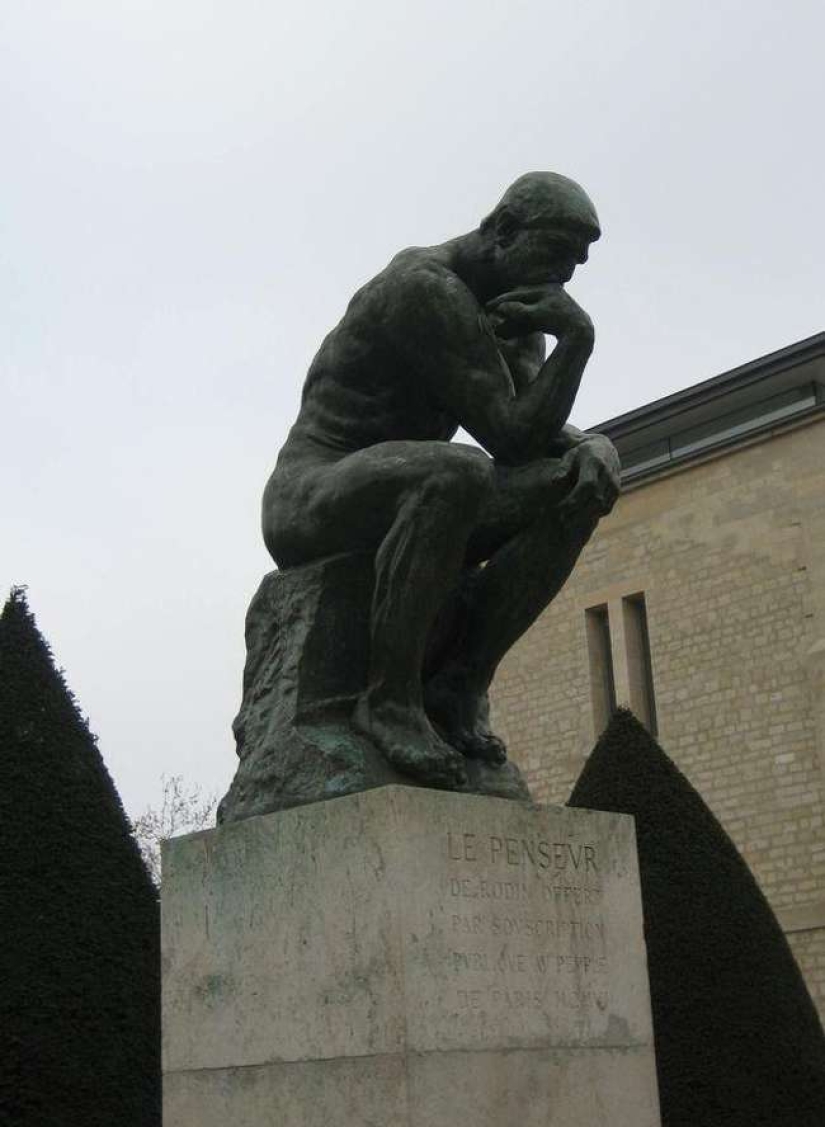
The Thinker is a bronze sculpture by Auguste Rodin, usually placed on a stone plinth. The painting depicts a more than life-size nude male figure seated on a stone with one hand resting his chin as if in deep thought, and is often used as an image to express philosophy. In total, there are about 28 full-size casts, in which the figure is about 186 centimeters high, although not all were made during Rodin's lifetime and under his supervision, as well as various other versions, some in plaster, studies and posthumous castings, in one body.
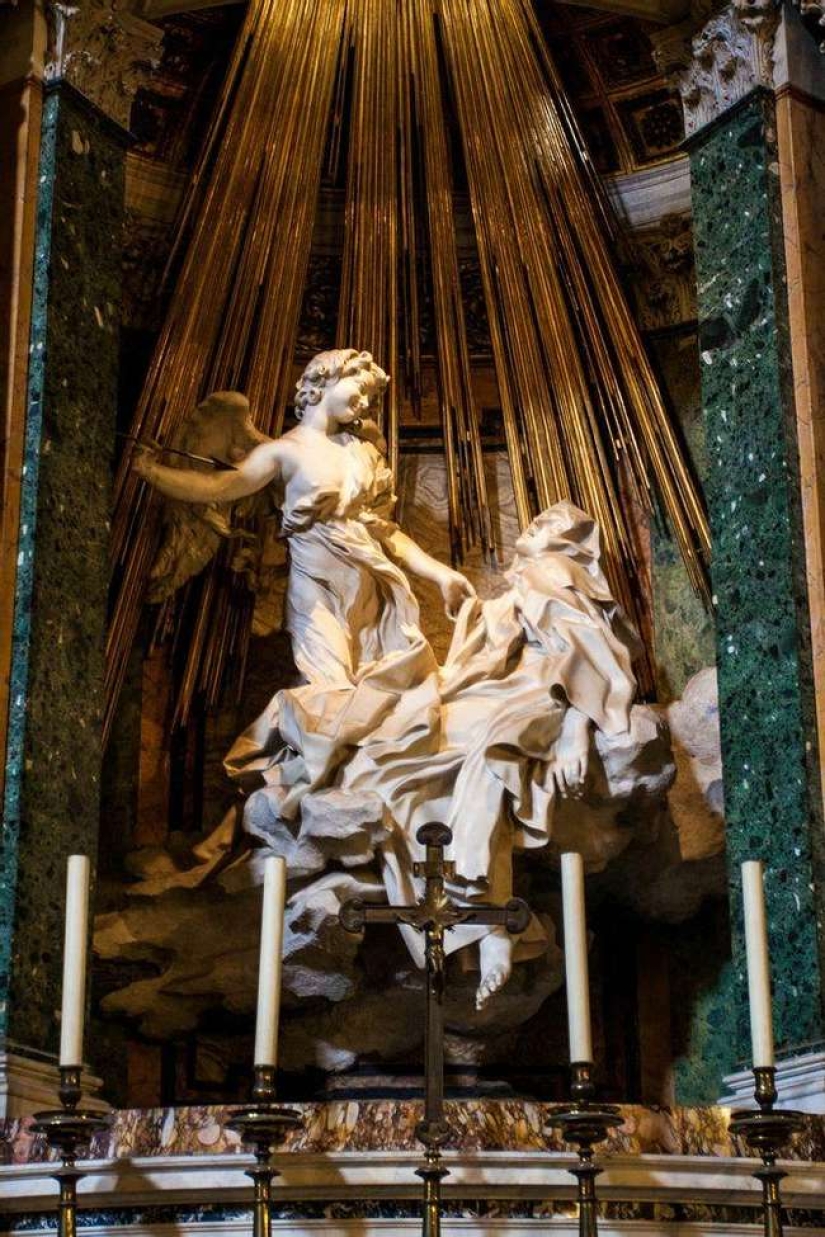
The Ecstasy of Saint Teresa is a central white marble sculpture set on a raised platform in the Cornaro Chapel, Santa Maria della Vittoria, Rome. It was designed and completed by Gian Lorenzo Bernini, the leading sculptor of his day, who also designed the furnishings of the chapel in marble, stucco and paint. It is considered one of the sculptural masterpieces of the High Roman Baroque.
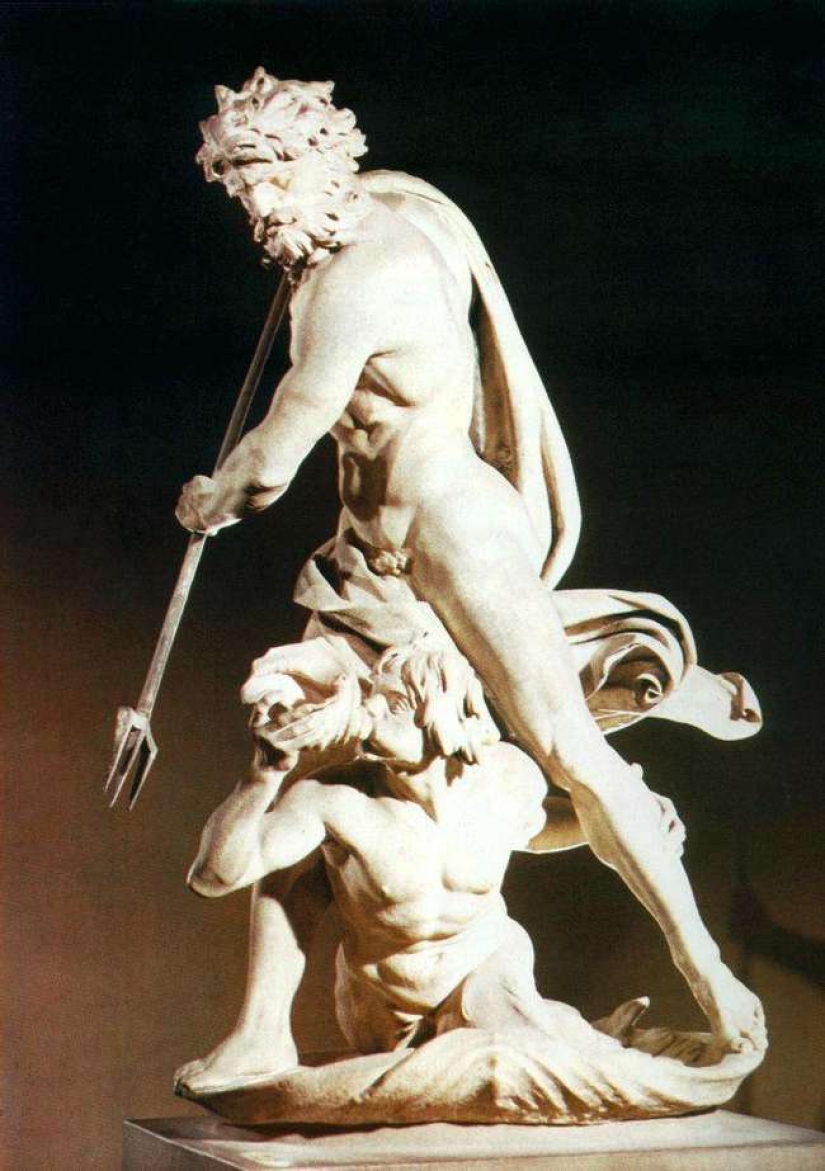
Neptune and Triton is an early sculpture by the Italian artist Gian Lorenzo Bernini.
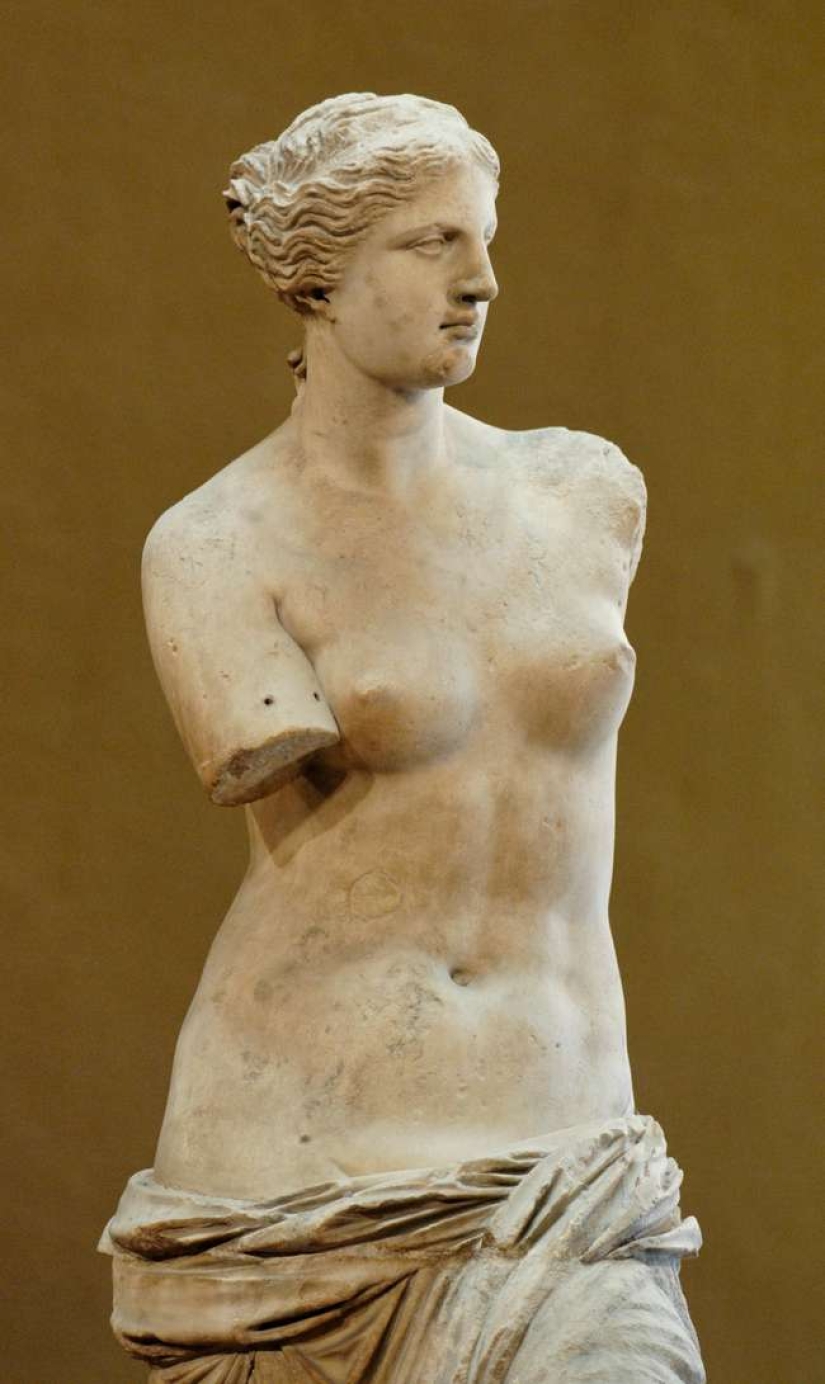
Aphrodite de Milo, better known as Venus de Milo, is an ancient Greek statue and one of the most famous works of ancient Greek sculpture. Created sometime between 130 and 100 BC, it is believed to represent Aphrodite, the Greek goddess of love and beauty. This is a marble sculpture, slightly larger than life size, 203 cm high. Judging by the inscription on the pedestal, it is assumed that this is the work of Alexandros of Antioch; Previously, it was erroneously attributed to the master sculptor Praxiteles. It is currently on permanent display at the Louvre in Paris.
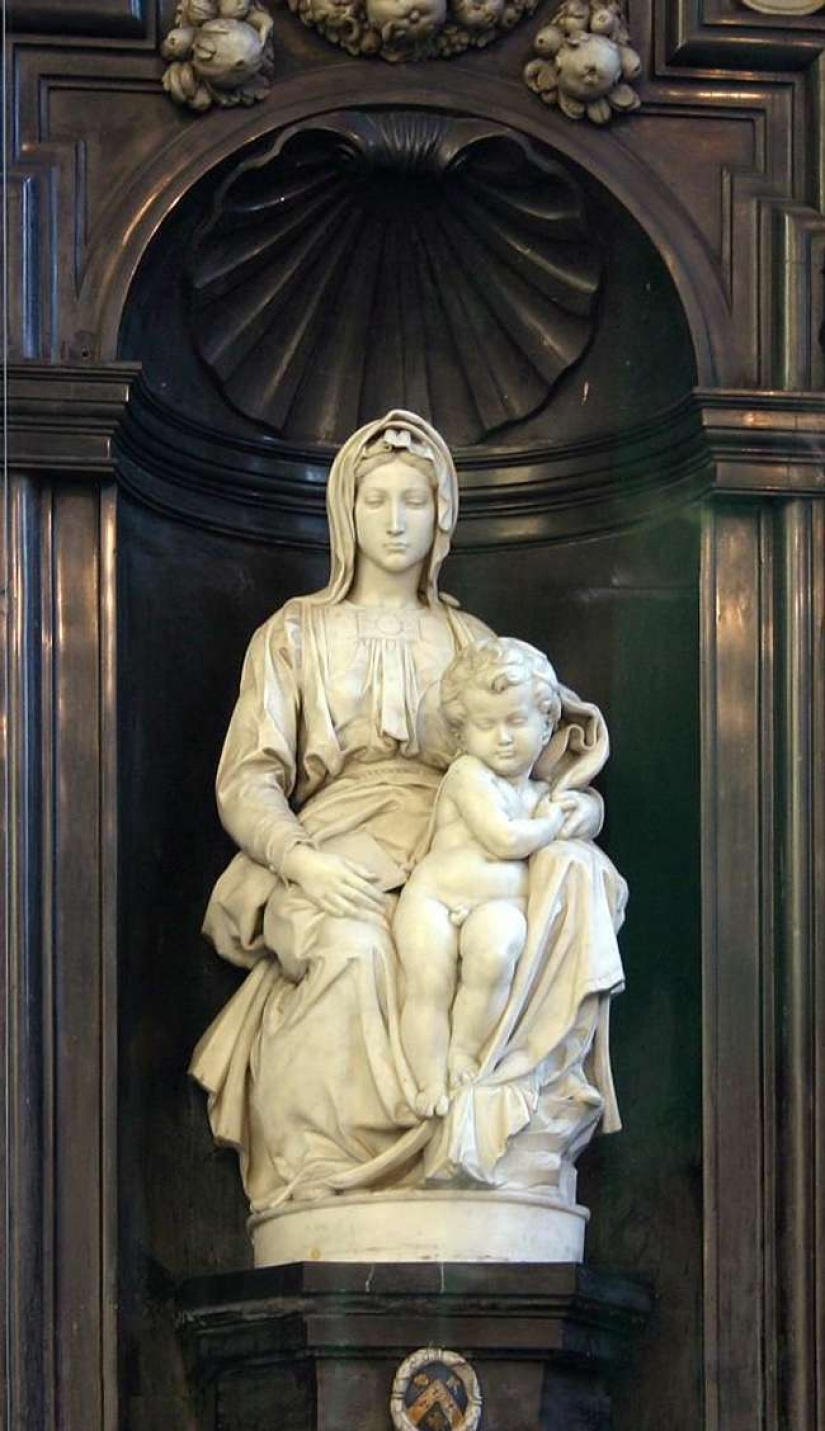
Madonna of Bruges is Michelangelo's marble sculpture of Mary with the baby Jesus. Michelangelo's depiction of the Madonna and Child differs significantly from earlier images, which usually depicted the pious Virgin smiling at the baby in her arms. Instead, Jesus stands up straight, almost unsupported, only lightly held by Mary's left hand, and appears to be about to move away from his mother into the world. Meanwhile, Mary does not cling to her son or even look at him, but looks down and away, as if she already knows what her son's fate is. It is believed that the work was originally intended for an altarpiece.
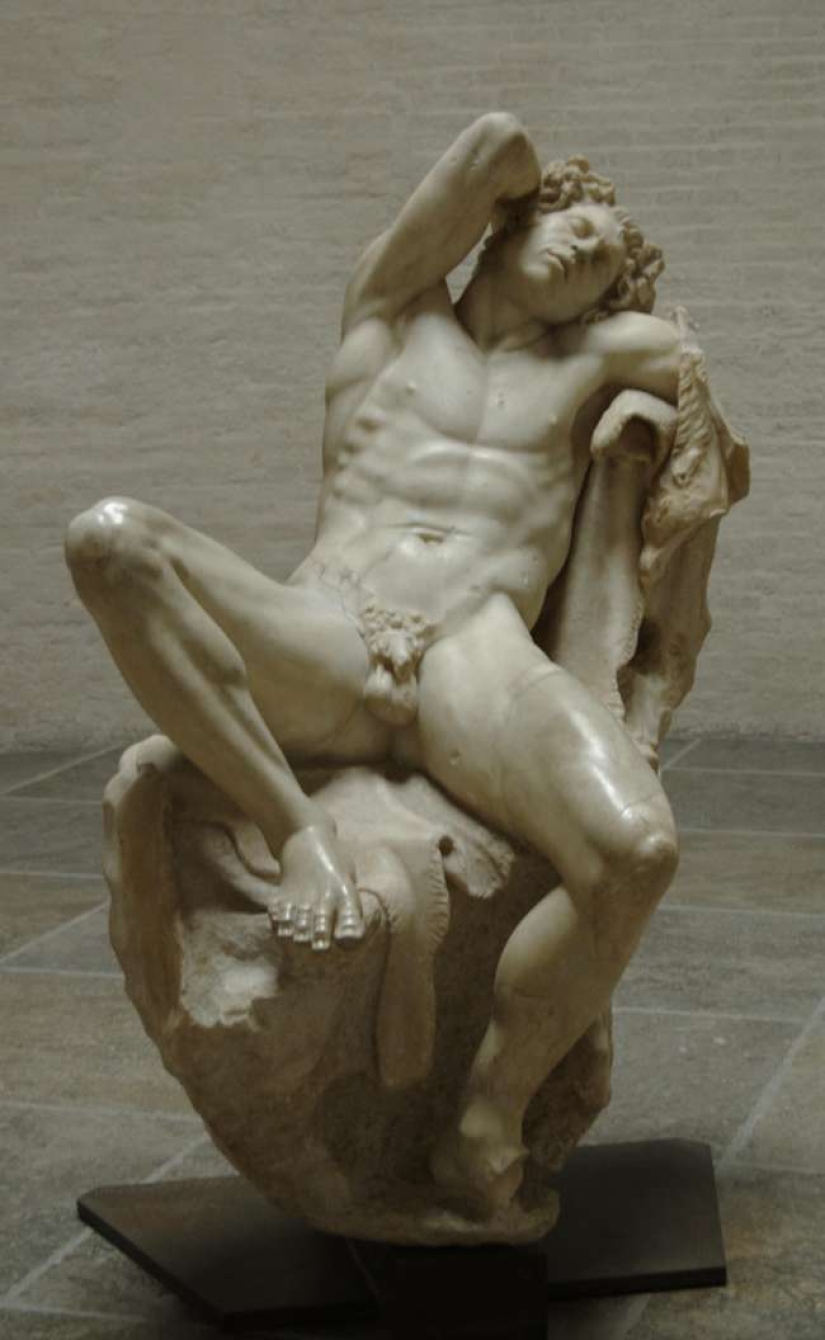
A life-size marble statue known as the Barberini Faun or the Drunken Satyr is in the Glyptothek in Munich, Germany. Faun is the Roman equivalent of the Greek satyr. In Greek mythology, satyrs were human-like male forest spirits with some animal features, often with a goat's tail, hooves, ears, or horns.
Keywords: THE BEST SCULPTURES
Post News ArticleRecent articles

It's high time to admit that this whole hipster idea has gone too far. The concept has become so popular that even restaurants have ...

There is a perception that people only use 10% of their brain potential. But the heroes of our review, apparently, found a way to ...

New Year's is a time to surprise and delight loved ones not only with gifts but also with a unique presentation of the holiday ...